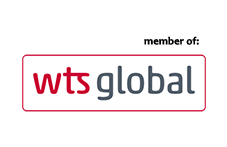Indonesia Introduces Global Minimum Tax Framework Effective January 2025
Implementation of Pillar Two Global Minimum Tax Effective from 1 January 2025
Indonesia has officially adopted the Global Minimum Tax (GMT) under the Minister of Finance Regulation Number 136 of 2024 (PMK-136), effective from 1 January 2025. This regulation aligns with the OECD’s Pillar Two framework on GMT.
The Global Minimum Tax applies to multinational enterprises (MNEs) with an annual turnover of at least EUR 750 million. Its primary objective is to ensure that corporate income earned within a jurisdiction is taxed at a minimum effective rate of 15%, achieved through the application of a “top-up tax.”
Implications for Indonesia
Under PMK-136, the affected entities include:
- Indonesia-based MNEs: Indonesian-headquartered groups with subsidiaries or operations abroad.
- Indonesia-based subsidiaries of foreign MNEs.
Key Tax Mechanisms
The regulation outlines three main top-up tax mechanisms in line with the OECD Model Rules:
- Income Inclusion Rules (IIR)
- Domestic Minimum Top-up Tax (DMTT)
- Undertaxed Payment Rule (UTPR)
Additionally, the regulation specifies a De Minimis Rule applicable to jurisdictions where:
- The average CE’s GloBE revenue is less than EUR 10 million, and
- The average CE’s GloBE net income is less than EUR 1 million, or a net loss occurs.
Filling and Compliance Requirements
The filing obligations for Ultimate Parent Entities (UPEs) and Constituent Entities (CEs) are summarized below:
|
|||||||||||||||||||
|---|---|---|---|---|---|---|---|---|---|---|---|---|---|---|---|---|---|---|---|
The afore-mentioned filings shall be submitted at the latest 15 months to the Director General of Tax (DGT) upon the fiscal year-end. The grace period of three months is however granted for initial implementation of PMK-136.
Penalties for Non-Compliance
Late submission or payment of top-up taxes will incur administrative penalties as stipulated by prevailing domestic regulations.
Your Contacts
Tomy Harsono
Partner (Consulthink)
T +62 811 9196 939
Tomy.harsono@consulthink.co.id


info@consulthink.co.id
www.consulthink.co.id
![]() consulthink
consulthink
+62 21 506 789 68




